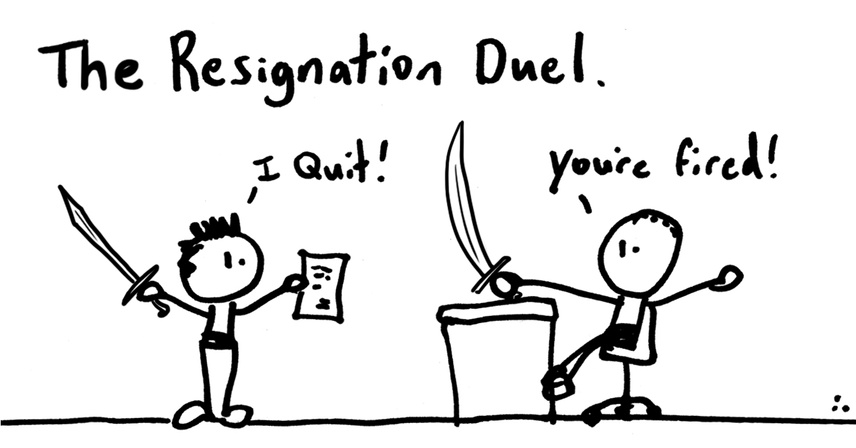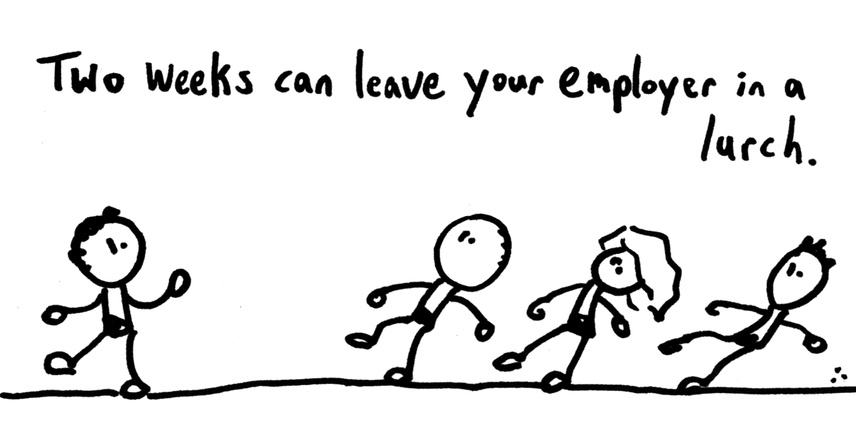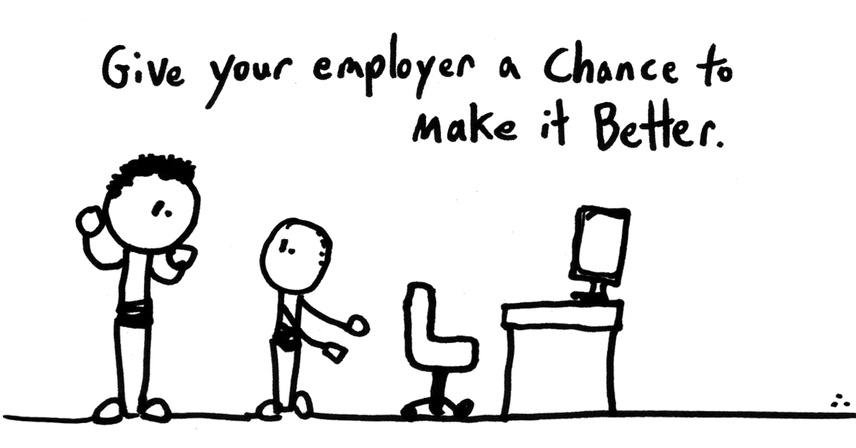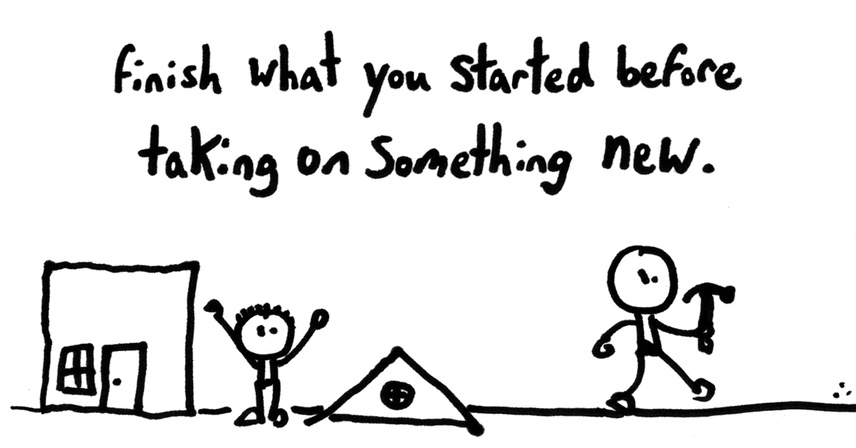Two Weeks Notice is Bullshit
- Thought Leadership
- By Seth Besmertnik
- 5 minutes read
I’m 55 minutes into my weekly 1:1 with my VP of Engineering, and he hands me an envelope with my name on it. It’s not my birthday, and this doesn’t feel like a birthday card.
I open the envelope and find a one-paragraph resignation letter giving me two weeks notice. I recruited this guy to NYC. I found his apartment. I had dinner with him and his wife once a month. And there it is, two weeks and he’s gone. I say, “Two weeks, are you joking?”
It wasn’t the first time I’d seen an employee resign like this. I’ve noticed a phenomenon that I call “the resignation duel,” in which the employee senses an issue and wants to be the first one to draw their weapon.
From that point eight years ago, I (and Conductor) have come a long way. I have discovered a better way for employees and employers to align and not screw each other over; a way that results in a better outcome for both the employee and the employer—and I’ve now had the chance to see it in action many times. It’s incredible.

People-First Culture Goes Both Ways
At Conductor, we believe our culture is as much defined by how we let people go as anything else. Before termination is even on the table, we first let people know there is an issue and how to recover from it.
If that doesn't work out, we often either give people time to look for a new job or give them a notice period and a severance. At the very minimum, it’s four weeks’ worth, and many more weeks after we first appraise them of the issue. We do the right thing by our people—even when it doesn’t work out. (I wrote a whole post on that here).
Creating a people-first culture is not just about how employers engage with their employees—it’s a mutual thing. If your employer has done you well and you want to leave in the best way possible, you have options, and it should not be a race to start your new job on time (there is long-term negative impact to leaving too quickly).
In some roles, it’s not a big deal if you leave in two weeks. For instance, if you are in sales, two weeks is more than enough. But if you are managing large teams, managing accounts, involved in projects or leading a group — it takes time to handle communication, transition plans, provide notice, etc. Two weeks can often leave your employer in a costly lurch.

There's a Better Way Than Two Weeks Notice
There’s a better way to resign, and I’ve experienced it many times. Here is the idea:
- When you are unhappy with how things are going, let your manager know. This gives them a chance to make things better and often could result in a better outcome for you. Usually, you are worth more to your current employer than to anyone else, so it’s a good place to start.
- If you are close to landing a new job, let your manager know and ask them how much time they will need.
- When you accept your new position, let your new employer know that you are excited to begin, but need time to transition. Of course they will pressure you to start, but you have to finish what you started before taking on something new.

What’s the right amount of time? It could be two weeks. It could be three or could be eight. The point is that you treat your company as well as they have treated you. If you communicate and be open, magical things will happen.
What I have found in my career is that there is no greater example of one’s character and true intention than how they leave their job. Do they provide proper notice? Do they work hard until the last day? Do they give it their all? Do they check out? Do they gossip with others?
When I think of the ‘great ones’ I've encountered so far in my life, employees that are not with me anymore, they consistently left like champions. And when I get calls for references for them, that’s the first thing I say.
You Are Worth Waiting For
If you’re worried about losing a new job because you asked for more time, it’s a false worry. It is a ‘war on talent’ and very difficult to find great people. If you receive an offer, that means you are great and they want you... and they will wait. There’s no factory churning out picture-perfect candidates. And there is only one you. They are hiring you with the promise of years of tenure, investment, and contribution — a short-term delay isn't going to change things.
Moreover, as an employer, you can only deeply respect someone who says, “I’m so excited to start — however, I have a commitment here to do what’s right and I just need a few weeks to make this work for them. They have been good to me.” Any employer who does not respect and embrace this way of doing business is not one you ever want to work for. I have hired many people who couldn’t start for weeks, or even 3 months. If you are playing the long game in business, you wait for good people.
As I write this post, we have an employee for whom I am actively serving as a reference while he seeks a brand new job. And I'm simultaneously rallying my leadership to find a new role for him, so that we can keep him here. It’s wild. He communicated with us and knows we care and support him. We get a chance to bid. He gets our support. The equilibrium will be maximized for him.
It’s a beautiful thing.

Do you disagree with me? Share your story in the comments section, or connect with me on LinkedIn .







